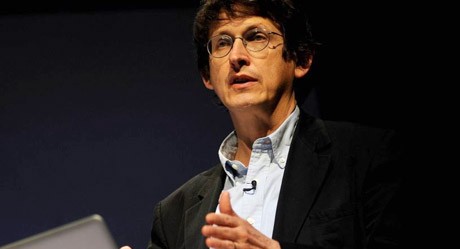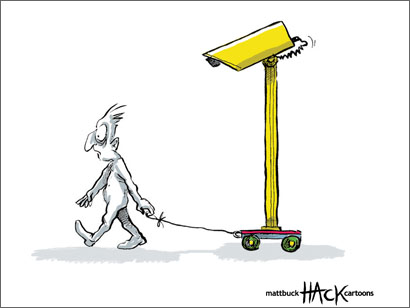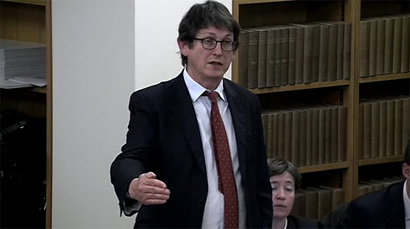
Guardian editor-in-chief Alan Rusbridger, who has been and remains a vocal critic of the Press Complaints Commission, argued last night that the regulatory body should be supported and improved, not scrapped, and said the press will need to pay more to if it wants an effective regulator.
Delivering the Anthony Sampson lecture at City University London, Rusbridger, who resigned from the PCC code committee in November 2009, did not let up in his customary criticism of the body, calling it “ineffective” and its 2009 report into phone-hacking at the News of the World “utterly feeble”.
“How, MPs reasonably ask, can we as an industry argue that self-regulation works when it evidently failed quite spectacularly over phone hacking?”, he asked.
In March last year, speaking at a debate on self-regulation in the House of Lords, Rusbridger suggested the PCC might be “flying the wrong flag [and might be] better to rebrand itself as a media complaints and conciliation service and forget about regulation”.
But he argued last night that self-regulation remains preferable to statutory regulation, and called for the PCC to take a tougher stance on issues such as phone hacking.
He asked why it hadn’t written directly to News International over Glenn Mulcaire, the private investigator at the heart of the phone-hacking scandal, to ask “why are you paying fees of someone likely to be involved in illegal activity?”.
The PCC, he said, needed to “do something which showed a vertabrae”.
I can’t imagine a fine than would scare News International, they’re just so big and rich. What scares them is the truth, they’re are scared of the truth coming out.
I put it to Rusbridger after the lecture that one of the things required to strengthen the regulator and allow it to undertake proper investigations would be better funding, and asked if, alongside his criticism of the body and calls for it to be improved, the Guardian should lead the way in making a greater financial contribution.
It’s difficult, it’s not lavishly funded and it’s clearly not set up to do something like a big investigation into phone hacking. I think if we want the kind of PCC that’s going to be effective we are all going to have to pay more. But that’s a pretty tough message if you work on the Yorkshire Post or the East Anglian Daily Times. Why should you pay more when by and large you’re not doing things that are going to require fantastically expensive investigation?
He acknowledged that the PCC did not have the funds to undertake thorough investigations, investigations “with teeth”, and said the press would have “to be a bit more creative about the way that we fund the PCC”.
It can’t just stagger on as it is, being completely ineffective because they shrug they’re shoulders and say ‘we haven’t got the power and we haven’t got the money’.
See Rusbridger’s full lecture at this link.


